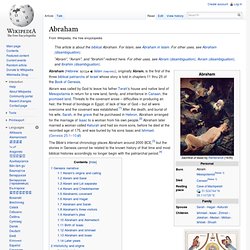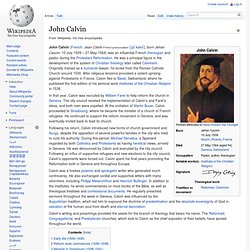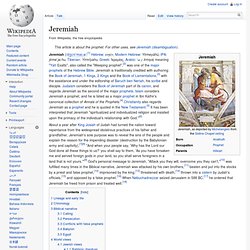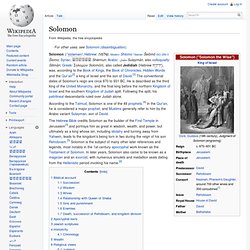

Abraham. Abraham (Hebrew: אַבְרָהָם Abram was called by God to leave his father Terah's house and native land of Mesopotamia in return for a new land, family, and inheritance in Canaan, the promised land.

Threats to the covenant arose – difficulties in producing an heir, the threat of bondage in Egypt, of lack of fear of God – but all were overcome and the covenant was established.[1] After the death, and burial of his wife, Sarah, in the grave that he purchased in Hebron, Abraham arranged for the marriage of Isaac to a woman from his own people. Abraham later married a woman called Keturah and had six more sons, before he died at the recorded age of 175, and was buried by his sons Isaac and Ishmael. (Genesis 25:1–10) The Bible's internal chronology places Abraham around 2000 BCE, but the stories in Genesis cannot be related to the known history of that time and most biblical histories accordingly no longer begin with the patriarchal period. Genesis narrative[edit] Abram and Sarai[edit] Martin Luther. Martin Luther OSA (German: [ˈmaɐ̯tiːn ˈlʊtɐ] ( ); 10 November 1483 – 18 February 1546) was a German monk, Catholic priest, professor of theology and seminal figure of the 16th-century movement in Christianity known later as the Protestant Reformation.[1] He strongly disputed the claim that freedom from God's punishment for sin could be purchased with monetary values.
He confronted indulgence salesman Johann Tetzel, a Dominican friar, with his Ninety-Five Theses in 1517. His refusal to retract all of his writings at the demand of Pope Leo X in 1520 and the Holy Roman Emperor Charles V at the Diet of Worms in 1521 resulted in his excommunication by the Pope and condemnation as an outlaw by the Emperor. Luther taught that salvation and subsequently eternity in heaven is not earned by good deeds but is received only as a free gift of God's grace through faith in Jesus Christ as redeemer from sin and subsequently eternity in Hell. Early life Birth and education Monastic and academic life. John Calvin. John Calvin (French: Jean Calvin French pronunciation: [ʒɑ̃ kalvɛ̃], born Jehan Cauvin: 10 July 1509 – 27 May 1564) was an influential French theologian and pastor during the Protestant Reformation.

He was a principal figure in the development of the system of Christian theology later called Calvinism. Originally trained as a humanist lawyer, he broke from the Roman Catholic Church around 1530. After religious tensions provoked a violent uprising against Protestants in France, Calvin fled to Basel, Switzerland, where he published the first edition of his seminal work Institutes of the Christian Religion in 1536. In that year, Calvin was recruited by William Farel to help reform the church in Geneva. Jeremiah. Jeremiah (/dʒɛrɨˈmaɪ.ə/;[1] Hebrew: יִרְמְיָהוּ, Modern Hebrew: Yirməyāhū, IPA: jirməˈjaːhu, Tiberian: Yirmĭyahu, Greek: Ἰερεμίας, Arabic: إرميا Irmiya) meaning "Yah Exalts", also called the "Weeping prophet",[2] was one of the major prophets of the Hebrew Bible.

Jeremiah is traditionally credited with authoring the Book of Jeremiah, 1 Kings, 2 Kings and the Book of Lamentations,[3] with the assistance and under the editorship of Baruch ben Neriah, his scribe and disciple. Judaism considers the Book of Jeremiah part of its canon, and regards Jeremiah as the second of the major prophets. Islam considers Jeremiah a prophet, and he is listed as a major prophet in Ibn Kathir's canonical collection of Annals of the Prophets.[4] Christianity also regards Jeremiah as a prophet and he is quoted in the New Testament.[5] It has been interpreted that Jeremiah "spiritualized and individualized religion and insisted upon the primacy of the individual's relationship with God.
"[6] Chronology[edit] Solomon. According to the Talmud, Solomon is one of the 48 prophets.[4] In the Qur'an, he is considered a major prophet, and Muslims generally refer to him by the Arabic variant Sulayman, son of David.

Biblical account[edit] Succession[edit] Cornelis de Vos, The Anointing of Solomon . According to 1 Kings 1:39, Solomon was anointed by Zadok. According to the biblical First Book of Kings, when David was old, "he could not get warm Adonijah asked to marry Abishag the Shunammite, but Solomon disallowed that, although Bathsheba now pleaded on Adonijah's behalf. Wisdom[edit] Artist's depiction of Solomon's court (Ingobertus, c. 880) One of the qualities most ascribed to Solomon is his wisdom. "And the king went to Gibeon to sacrifice there; for that was the great high place: a thousand burnt offerings did Solomon offer upon that altar.
The judgment of Solomon (painting on ceramic), Castelli, IT: Lille Museum of Fine Arts, 18th century . Solomon is also noted as one of many authors of Wisdom literature.